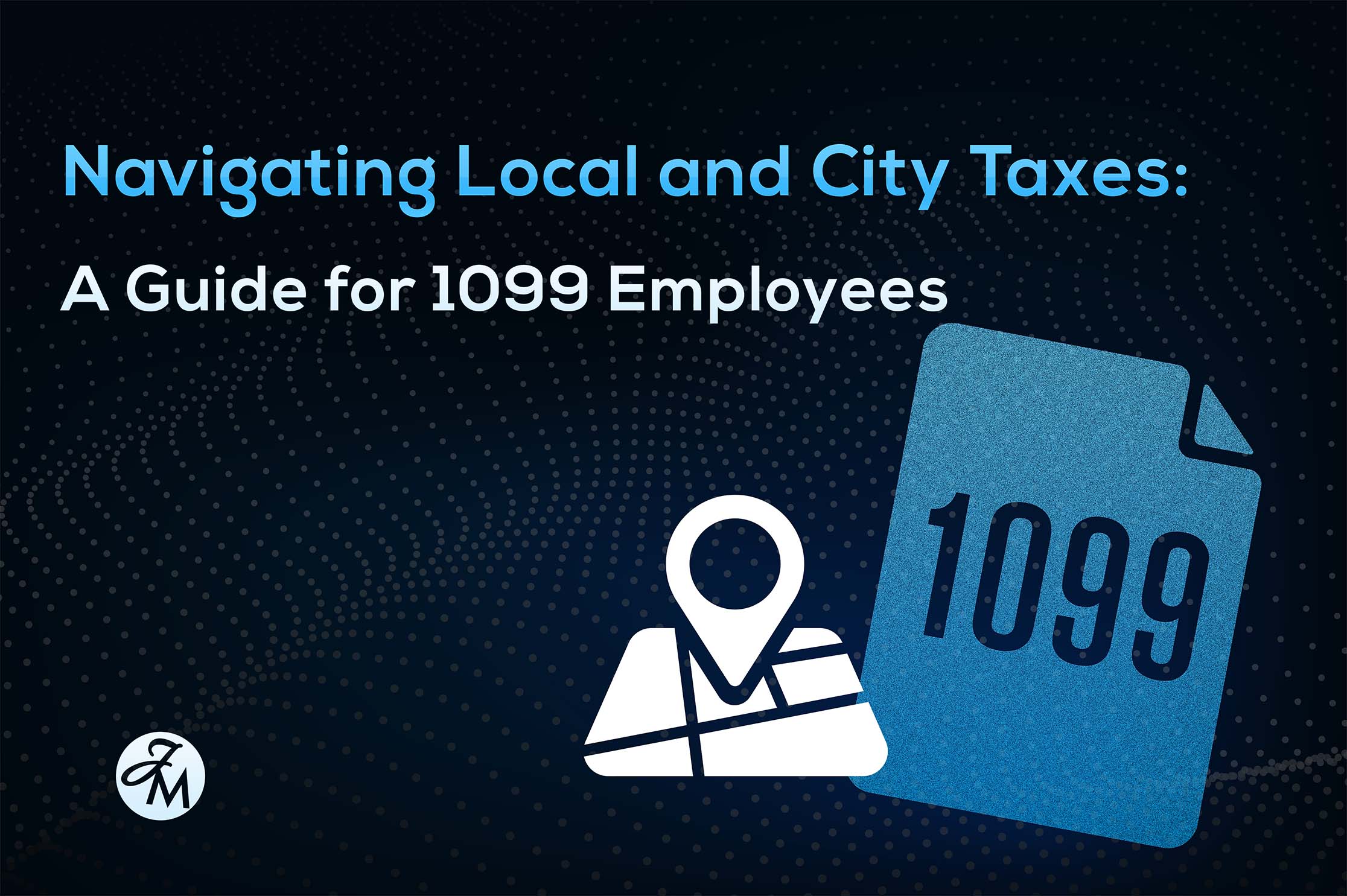Understanding Local and City Taxes
Local and city taxes are imposed by counties, cities, or other local jurisdictions. These taxes can include income taxes, business taxes, and other levies that apply specifically to independent contractors and freelancers. Understanding your local and city tax obligations is crucial to avoid penalties and ensure you’re paying the correct amount.
Key Considerations for Local and City Taxes
- Local and City Income Taxes
Some cities and counties impose local income taxes on top of state and federal taxes. These rates and rules vary widely, so it’s essential to know the specific requirements in your locality.
- Business Licenses and Permits
Many localities require 1099 employees to obtain business licenses or permits. These permits often come with associated fees that must be paid annually. Check with your local government to determine what licenses or permits you need.
- Local and City Business Taxes
In addition to income taxes, some localities impose business taxes based on your gross receipts or net income. These taxes can apply even if you don’t have a physical business location within the locality.
- Property Taxes
If you use part of your home for business purposes, you may be subject to additional property tax assessments. This can vary based on your local jurisdiction’s rules regarding home office spaces.
- Other Local Levies
Some localities impose additional levies, such as occupational taxes or service fees, that apply to independent contractors. These levies can vary significantly and may require separate filings.
Steps to Manage Your Local and City Tax Obligations
- Research Local and City Tax Laws
Start by researching the local and city tax laws in your area. Visit your city’s or county’s official website to find information on local taxes, business licenses, and permits. You can also contact your local tax office for specific guidance.
- Register Your Business
Ensure your business is properly registered with your local government. This may involve obtaining a business license, registering for local taxes, and paying any associated fees.
- Track Your Income and Expenses
Accurate record-keeping is essential for managing local and city tax obligations. Keep detailed records of your income and business expenses, as this information will be necessary for calculating local taxes and filing returns.
- Make Timely Payments
Local and city taxes often have different due dates from state and federal taxes. Mark your calendar with the deadlines for local tax filings and payments to avoid late fees and penalties.
- Consult a Tax Professional
Local and city tax laws can be complex and vary significantly from one jurisdiction to another. If you’re unsure about your local tax obligations, consider consulting with a tax professional who specializes in local and city taxes.
Common Challenges and How to Overcome Them
- Complex and Varied Tax Rules
Local and city tax rules can be complex and differ widely between jurisdictions. Stay informed by regularly checking local government websites and seeking updates from tax professionals.
- Ensuring Compliance Across Multiple Locations
If you work in multiple locations, you may be subject to different local and city tax rules in each area. Keep track of where you earn income and understand the tax obligations in each location.
- Managing Additional Tax Filings
Local and city taxes often require additional filings beyond state and federal returns. Set reminders and use tax software to help manage multiple filing requirements.
Conclusion
Navigating local and city taxes as a 1099 employee requires careful attention to detail and proactive management. By understanding your local and city tax obligations, keeping accurate records, and making timely payments, you can ensure compliance and avoid costly penalties. If you find local tax management overwhelming, don’t hesitate to seek professional assistance. Proper tax planning at the local level not only ensures compliance but also helps you manage your overall tax burden effectively.
What are local and city taxes?
Local and city taxes are additional taxes imposed by counties, cities, or other local jurisdictions. They can include income taxes, business taxes, and other levies specific to independent contractors and freelancers.
Why is it important to understand local and city income taxes?
Understanding local and city income taxes is important because some localities impose these taxes on top of state and federal taxes. The rates and rules can vary widely, so knowing the specific requirements in your area is essential to avoid penalties and ensure correct payment.
What should I know about business licenses and permits as a 1099 employee?
Many localities require 1099 employees to obtain business licenses or permits, which often come with associated fees that must be paid annually. It's important to check with your local government to determine what licenses or permits you need.
How do property taxes affect 1099 employees?
If you use part of your home for business purposes, you may be subject to additional property tax assessments, depending on your local jurisdiction's rules regarding home office spaces.
What steps should I take to manage my local and city tax obligations?
To manage your local and city tax obligations, you should:
1.
Research local and city tax laws in your area.
2.
Register your business with your local government.
3.
Keep detailed records of your income and expenses.
4.
Make timely payments to meet different due dates for local taxes.
5.
Consult a tax professional if you're unsure about your obligations

